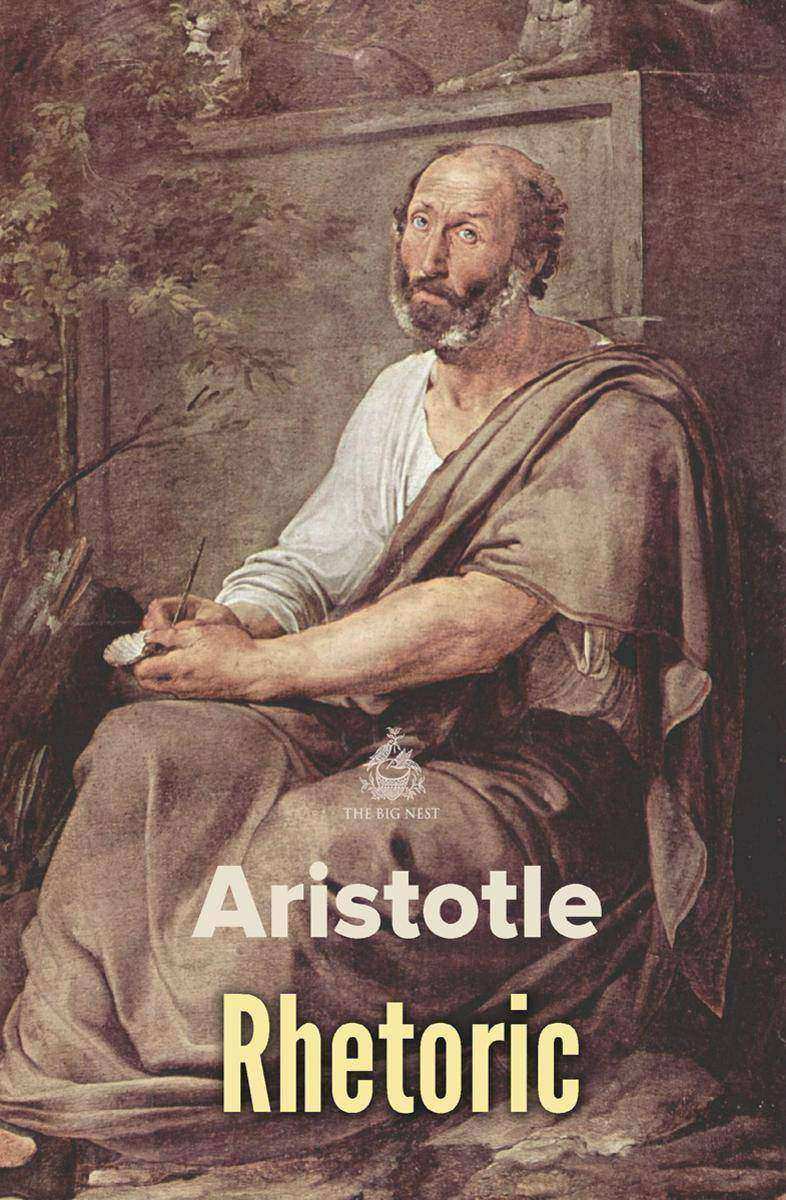
Rhetoric
¥40.79
Aristotle's Rhetoric is an ancient Greek text on the art of persuasion, dating from the 4th century BC.
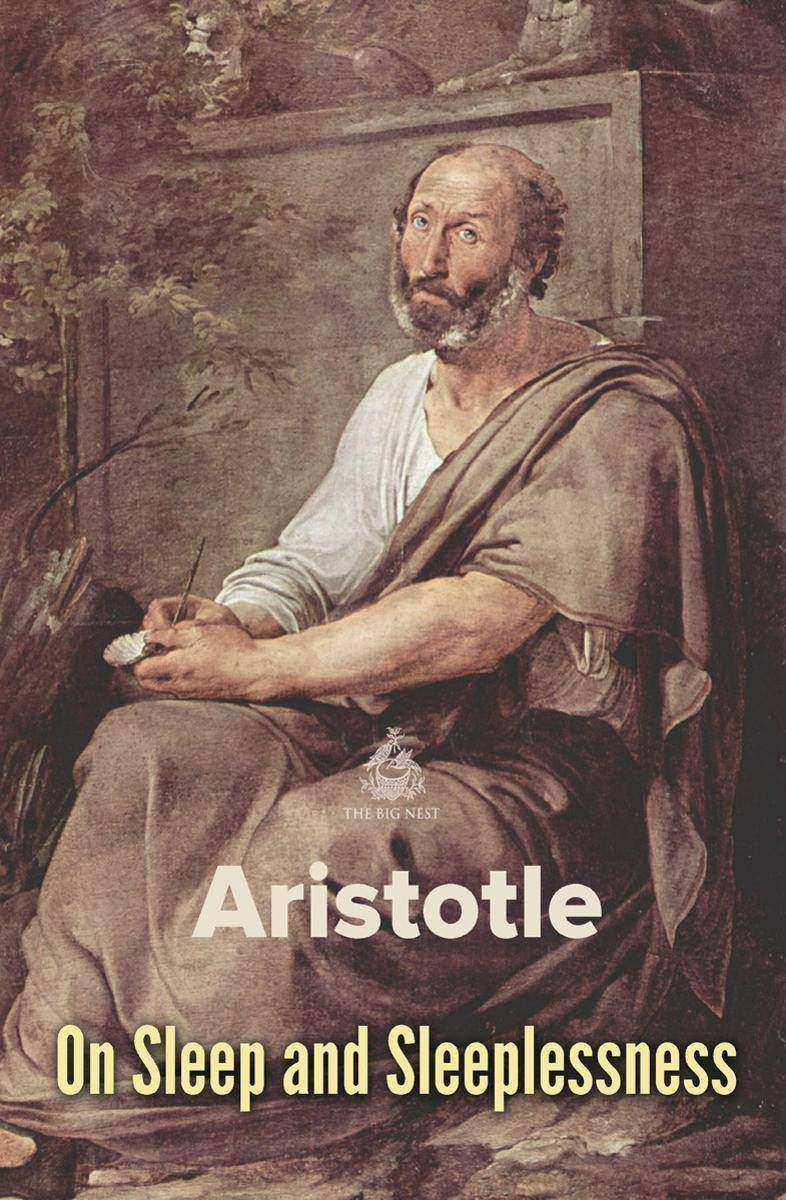
On Sleep and Sleeplessness
¥40.79
With regard to sleep and waking, we must consider what they are: whether they are peculiar to soul or to body, or common to both; and if common, to what part of soul or body they appertain: further, from what cause it arises that they are attributes of animals, and whether all animals share in them both, or some partake of the one only, others of the other only, or some partake of neither and some of both.

On Benefits
¥40.79
On Benefits contains series of moral essays and dialogues composed by the Roman Stoic philosopher Seneca. The work explores such philosophical themes as providence, steadfastness, the happy life, anger, leisure, tranquility, the brevity of life, gift-giving, forgiveness, and treatises on natural phenomena.
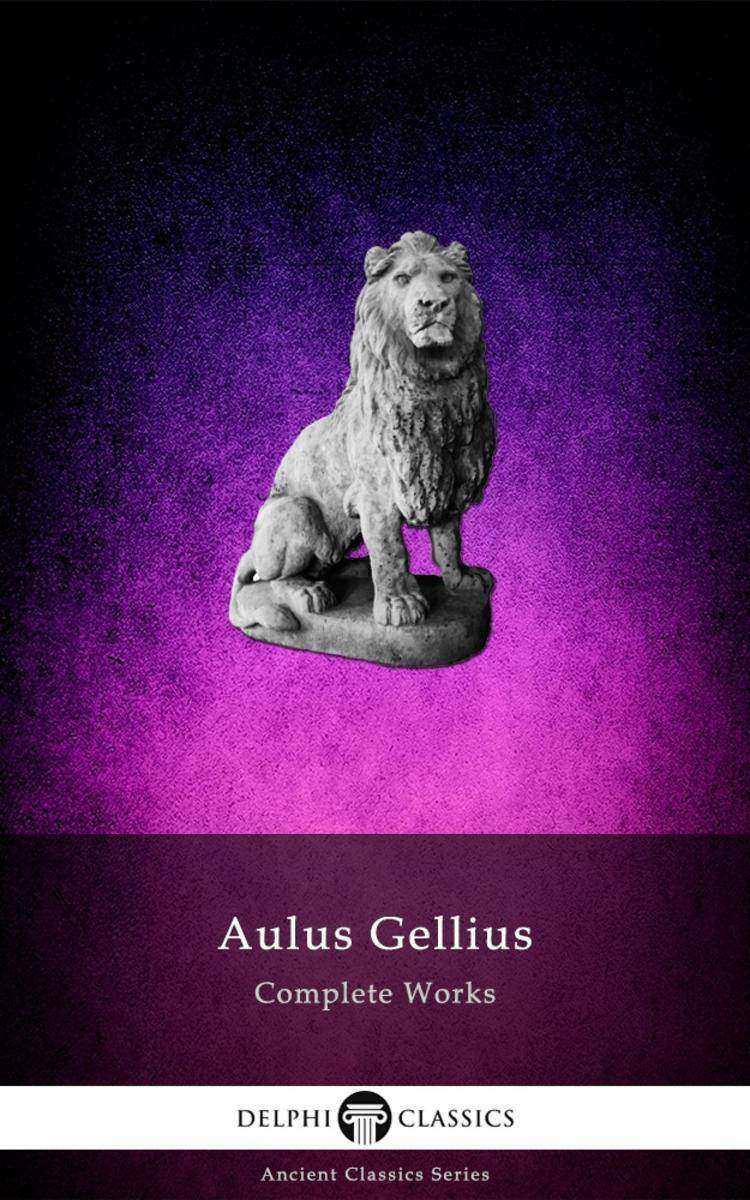
Delphi Complete Works of Aulus Gellius - 'The Attic Nights' (Illustrated)
¥16.27
Composed during the nights of an Attic winter, the sole surviving work of Aulus Gellius, the second century Latin author and grammarian, is an intriguing compendium of notes covering philosophy, history, biography and questions of grammar. ‘Attic Nights’ offers a valuable insight into the works of lost authors and the manners and occupations of Roman society. Delphi’s Ancient Classics series provides eReaders with the wisdom of the Classical world, with both English translations and the original Latin texts. This comprehensive eBook presents Aulus Gellius’ complete extant works, with relevant illustrations, informative introductions and the usual Delphi bonus material. (Version 1) * Beautifully illustrated with images relating to Aulus Gellius’ life and works* Features the complete extant works of Aulus Gellius, in both English translation and the original Latin* Concise introductions to the ‘Attic Nights’* Includes John C. Rolfe’s translation previously appearing in the Loeb Classical Library edition of Aulus* Excellent formatting of the texts* Easily locate the sections you want to read with individual contents tables* Provides a special dual English and Latin text, allowing readers to compare the sections paragraph by paragraph – ideal for students* Features a bonus biography – discover Aulus Gellius’ ancient world* Scholarly ordering of texts into chronological order and literary genres Please visit www.delphiclassics.com to explore our range of Ancient Classics titles or buy the entire series as a Super Set CONTENTS: The TranslationTHE ATTIC NIGHTS The Latin TextCONTENTS OF THE LATIN TEXT The Dual TextDUAL LATIN AND ENGLISH TEXT The BiographyLIFE OF AULUS GELLIUS by G. H. Nall Please visit www.delphiclassics.com to browse through our range of exciting titles
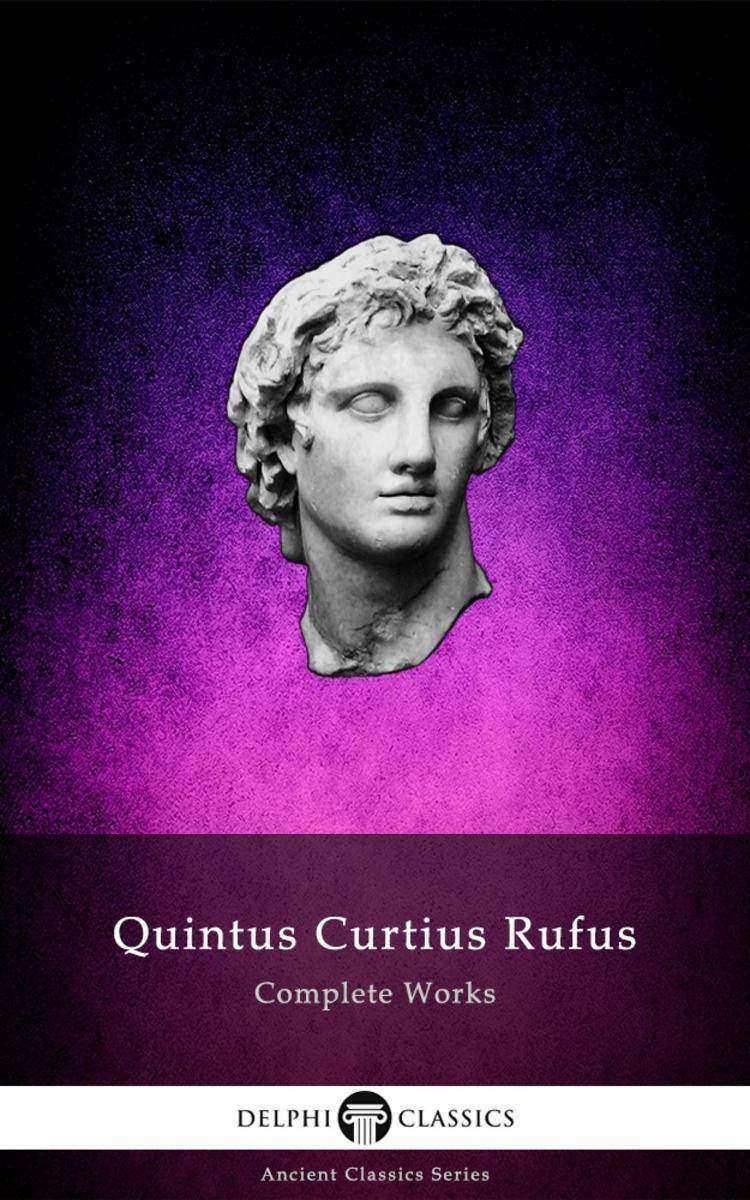
Delphi Complete Works of Quintus Curtius Rufus - History of Alexander (Illustrat
¥24.44
Quintus Curtius was a rhetorician that lived in the first century of the Roman Empire, who wrote a history of Alexander the Great, one of the five extant works on the legendry Macedonian king. Composed in a concise yet picturesque style, this short historical work tells the fascinating story of a man whose exploits continue to astound after more than two millennia. Delphi’s Ancient Classics series provides eReaders with the wisdom of the Classical world, with both English translations and the original Latin texts. This comprehensive eBook presents Curtius’ complete extant text, with relevant illustrations, informative introductions and the usual Delphi bonus material. (Version 1) * Beautifully illustrated with images relating to Curtius’ work* Features the complete extant text of Curtius, in both English translation and the original Latin* Includes J. C. Rolfe’s translation, previously appearing in the Loeb Classical Library edition* Excellent formatting of the texts* Easily locate the books you want to read with individual contents tables* Provides a special dual English and Latin text, allowing readers to compare the sections paragraph by paragraph – ideal for students* Features a bonus biography – discover Curtius’ ancient world and text* Scholarly ordering of texts into chronological order and literary genres Please visit www.delphiclassics.com to explore our range of Ancient Classics titles or buy the entire series as a Super Set CONTENTS: The TranslationHISTORY OF ALEXANDER The Latin TextCONTENTS OF THE LATIN TEXT The Dual TextDUAL LATIN AND ENGLISH TEXT The BiographyINTRODUCTION TO QUINTUS CURTIUS RUFUS by J. C. Rolfe Please visit www.delphiclassics.com to browse through our range of exciting titles
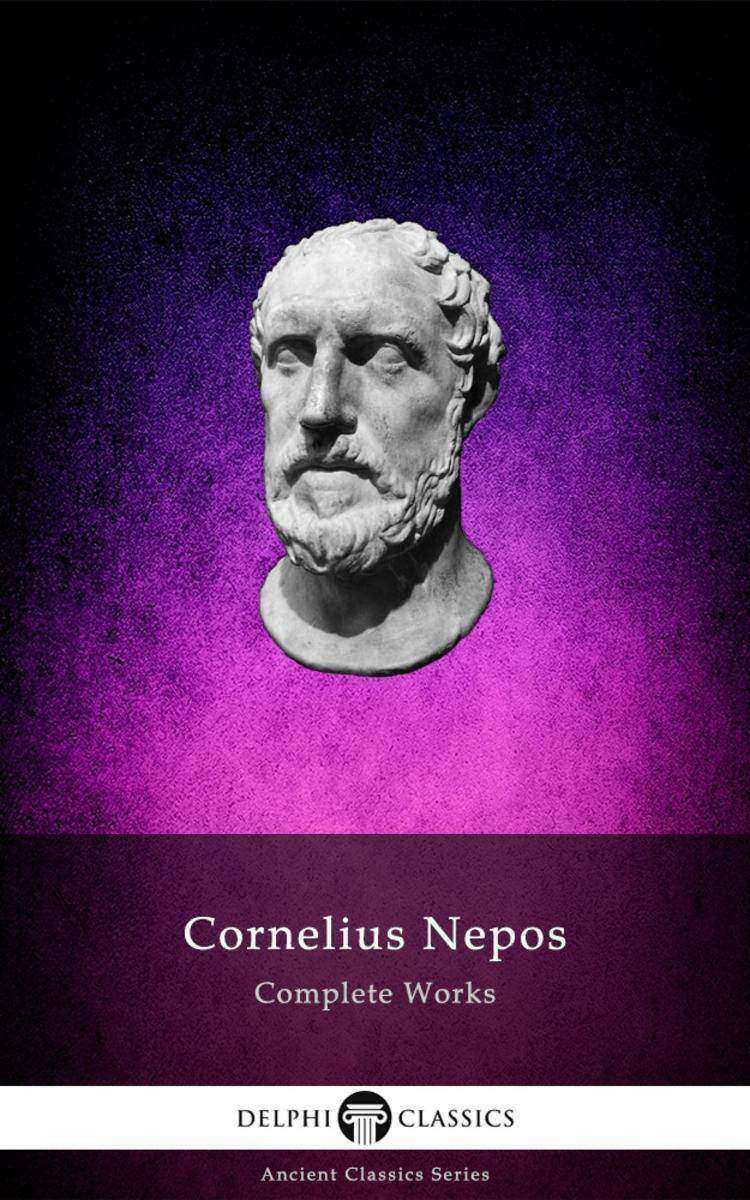
Delphi Complete Works of Cornelius Nepos (Illustrated)
¥16.27
The friend of Cicero, Atticus and Catullus, Cornelius Nepos wrote short popular biographies of Greek and Roman commanders. The lives are composed in a concise, readable style and they are invaluable for their use of reliable sources. Delphi’s Ancient Classics series provides eReaders with the wisdom of the Classical world, with both English translations and the original Latin texts. This comprehensive eBook presents Nepos’ complete extant works, with relevant illustrations, informative introductions and the usual Delphi bonus material. (Version 1) * Beautifully illustrated with images relating to Nepos’ life and works* Features the complete extant works of Nepos, in both English translation and the original Latin* Concise introduction to the extant works* Features John Selby Watson’s translation of LIVES OF EMINENT COMMANDERS* Excellent formatting of the texts* Easily locate the sections you want to read with individual contents tables* Includes Watson’s original footnotes* Provides a special dual English and Latin text, allowing readers to compare the sections paragraph by paragraph – ideal for students* Features a bonus biography – discover Nepos’ ancient world* Scholarly ordering of texts into chronological order and literary genres Please visit www.delphiclassics.com to explore our range of Ancient Classics titles or buy the entire series as a Super Set CONTENTS: The TranslationLIVES OF EMINENT COMMANDERS The Latin TextCONTENTS OF THE LATIN TEXT The Dual TextDUAL LATIN AND ENGLISH TEXT The BiographyBRIEF BIOGRAPHY: CORNELIUS NEPOS Please visit www.delphiclassics.com to browse through our range of exciting titles
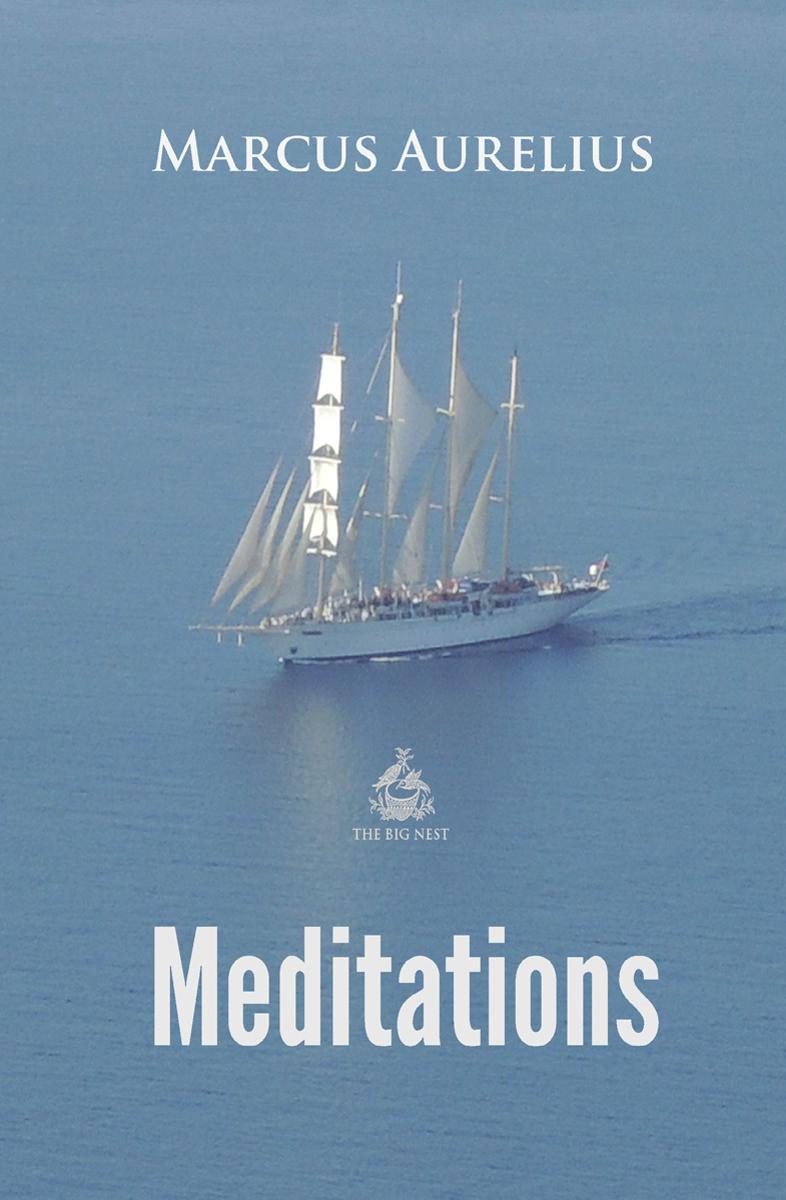
Meditations
¥40.79
Meditations contains a series of personal writings by Marcus Aurelius, Roman Emperor from 161 to 180 AD, recording his private notes to himself and ideas on Stoic philosophy. Stoics often present their philosophy as a way of life. To live a good life, one has to understand the rules of the natural order since they taught that everything is rooted in nature.
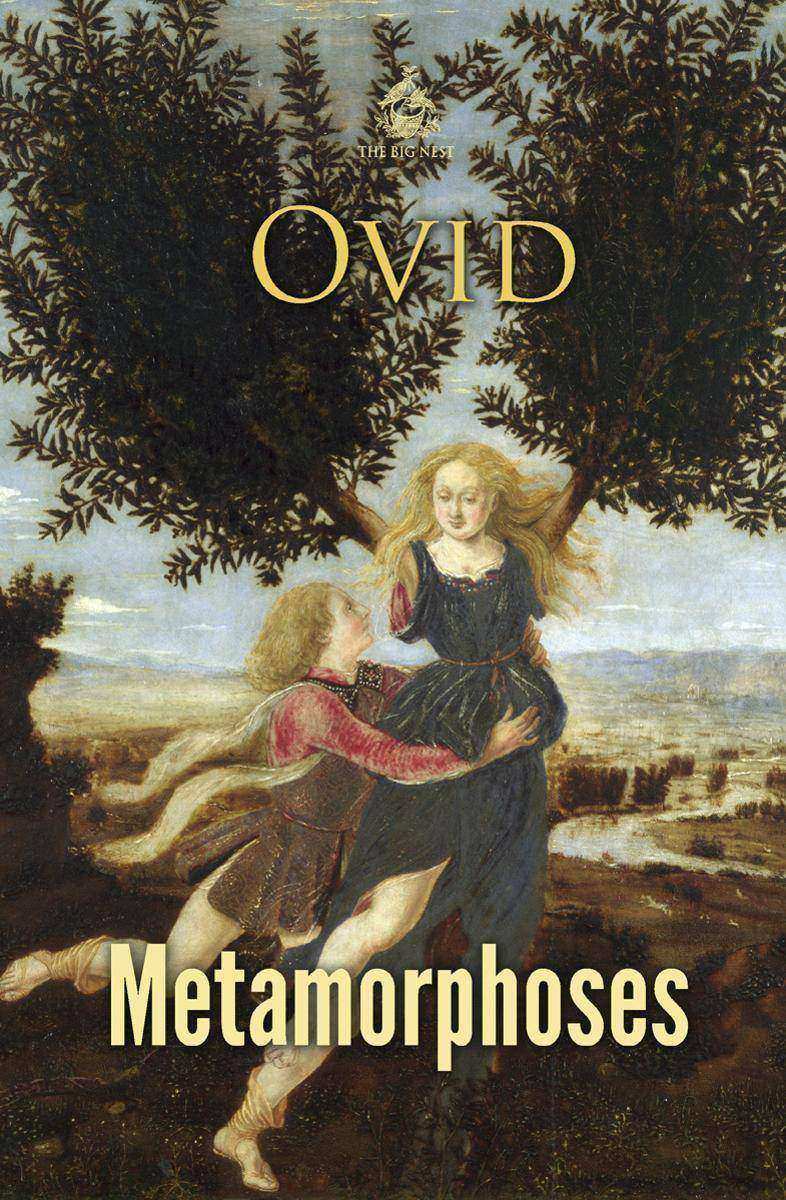
Metamorphoses
¥40.79
The Metamorphoses consists of fifteen books and over 250 myths. The poem chronicles the history of the world from its creation to the deification of Julius Caesar within a loose mythico-historical framework.

Infusionsoft Cookbook
¥99.18
Over 88 recipes for effective use of Infusionsoft to mitigate your CRM needs, marketing automation, conducting online business optimallyAbout This BookMaximize client engagement by automating lead capture and follow-upCollect information and set up lead scoring in Infusionsoft to enhance your marketing interactions to build more clientsSet up online shopping carts, manage your online store, and enhance user experience Who This Book Is For If you want to excel in the use of Infusionsoft to develop a set of common applications or project types and solutions effectively, this book is perfect for you. This book will empower you to provide better results for your clients, faster! It is assumed that you are familiar with and use Infusionsoft.What You Will LearnSet up and configure features that will enhance new user creation using InfusionsoftAttract leads and build your list efficientlyUnderstand the different strategies to sell and get paidCreate amazing customer experiences by following up and automating messagesMaster techniques to use Infusionsoft for internal administrative functionsMake better business decisions by mastering the reporting functionalitySave time and simplifying day-to-day usage using InfusionsoftGet to know the Ninja hacks while working with Infusionsoft efficiently. In Detail Infusionsoft is an all-in-one software-as-a-service (SaaS) for small business sales and marketing. It empowers businesses with the same level of automation and personalization that were previously only available to large corporate enterprises with deep pockets. You can easily manage customer relationships, target communications in an automated manner, and sell their products/services online effectively. Starting with recipes on the general setup and core competencies related to Infusionsoft, you will then learn about tools to enhance user experience. Further on, you'll dive deep into different strategies to attract, sell, and wow your customers. You’ll also explore different ways to manage administrative tasks and reporting, which are crucial to perform better workflow management. Later, you will become proficient in lead generation and lead management, referral management, report generation, and working with the campaign builder. Finally, the book closes with unsupported ninja hacks to take your business strategies into the stratosphere!Style and approach A recipe-based guide that covers real-life scenarios on optimising marketing automation, lifecycle management, lead generation, inventory management, and adding ecommerce functionality
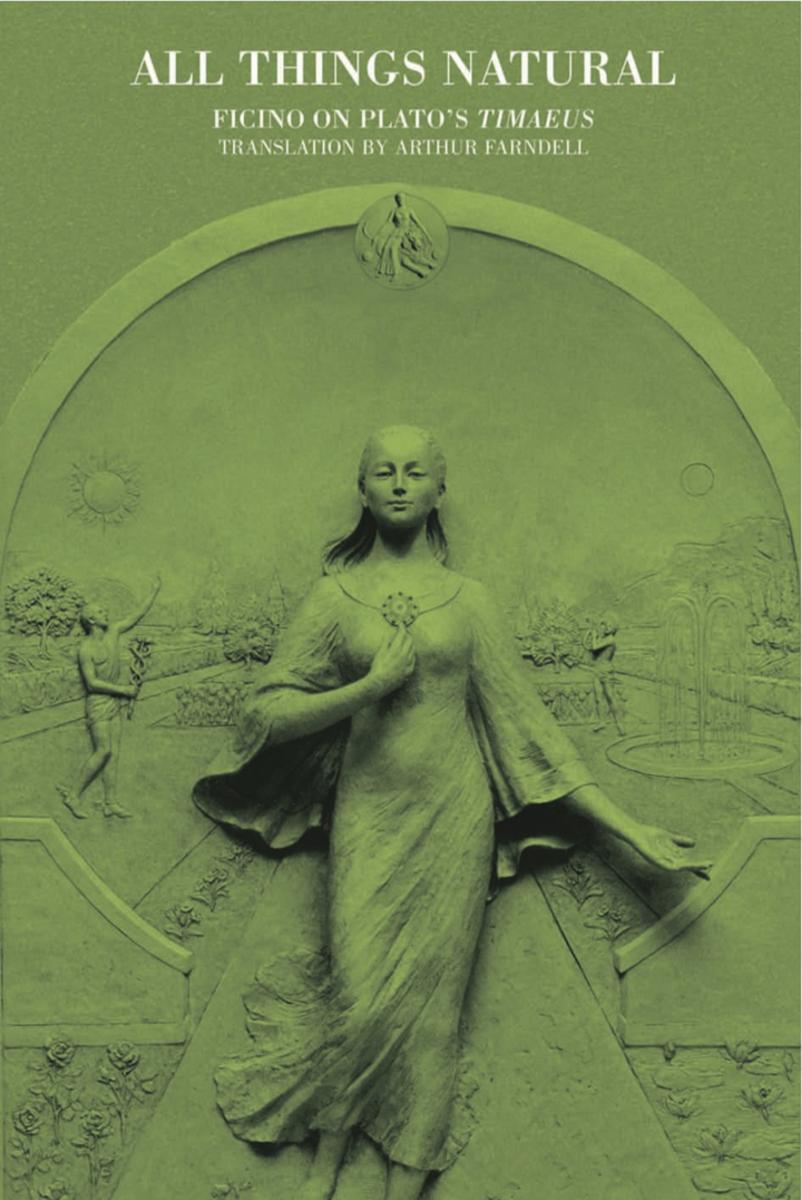
All Things Natural
¥24.44
Ficino's commentary on Plato?s Timaeus offers the English reader, for the first time, an opportunity to share the insights of this highly influential Renaissance philosopher into one of Plato's most important and controversial works. Here are discussed the perennial questions which affect us all: What is the nature of the universeHow did it beginDoes it have a cause outside itselfWhat is our place in itWhat is the nature of mind, soul, matter and timeThe central portion of the work, focusing on number, harmony, and music, has exerted a strong influence on the history of Western musical theory. Ficino added an appendix which amplifies and elucidates Plato?s meanings and reveals fascinating detail about Ficino himself. This volume provides rich source material for all who are interested in philosophy, the history of cosmic theory, and Platonic and Renaissance studies. This completes the four volume series, including Gardens of Philosophy, 2006 (ISBN 9780856832406), Evermore Shall Be So, 2008 (9780856832567) and When Philosophers Rule, 2009 (9780856832574), which contain all Ficino?s commentaries not previously translated into English.
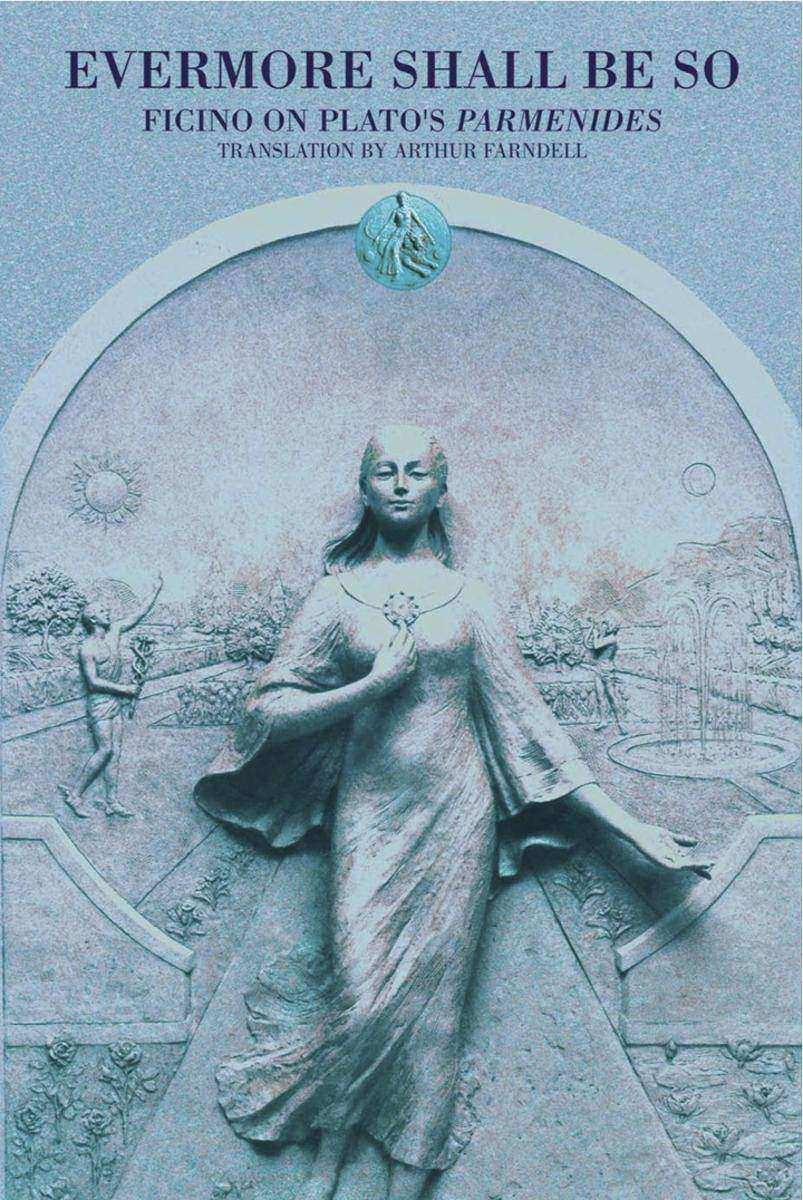
Evermore Shall Be So
¥24.44
With the publication of Arthur FWith the publication of Arthur Farndell’s Gardens of Philosophy (Shepheard Walwyn 2006), there remained only four of Ficino’s commentaries on Plato’s dialogues which had not yet been translated into English. With the publication of this volume there remain only three. Farndell’s translation of the commentaries on the Republic and the Laws will comprise the third volume under the title When Philosophers Rule (9780856832574 – due 2009) and the fourth, All Things Natural (9780856832581 – due 2010), will contain the Timaeus. As Carol Kaske of Cornell University wrote when reviewing Gardens of Philosophy in Renaissance Quarterly, these translations fill ‘a need. Even those Anglophone scholars who know Latin still need a translation in order to read quickly through a large body of material’ The central message of Parmenides, that everything depends on the One, resonates with the growing awareness around the world of the interrelatedness of all things, be it in the biosphere, the intellectual or spiritual realms. Philosophers in ancient Greece appreciated this unity and employed reason and dialectic to draw the mind away from its preoccupation with the material world and attract it towards contemplation of the soul, and ultimately of that Oneness which embraces, but is distinct from, the multifarious forms of creation. Thus Parmenides carefully instructed the young Socrates, and Plato recorded their dialogue in this work which he named after the elderly philosopher. Nearly 2000 years later, Marsilio Ficino made Parmenides available to the West by translating it into Latin, the language of scholars in his time. Ficino added a lengthy commentary to this translation, a commentary which Evermore Shall Be So puts into English for the first time, more than 500 years after its original composition. Ficino’s crucial influence upon the unfolding of the Renaissance and his presentation of Plato’s understanding of the One and the socalled Platonic Ideas or Forms make Evermore Shall Be So an important work in the history of thought. Though it will be an essential buy for Renaissance scholars and historians, its freshness of thought and wisdom are as relevant today as they ever were to inspire a new generation seeking spiritual and philosophical direction in their lives. ‘This is philosophy with a mystical dimension – one that is crucial to the original Socratic and Platonic teaching’ Tony Cross in Faith and Freedomarndell’s Gardens of Philosophy ( 2006), there remained only four of Ficino’s commentaries on Plato’s dialogues which had not yet been translated into English. With the publication of this volume there remain only three. Farndell’s translation of the commentaries on the Republic and the Laws will comprise the third volume under the title When Philosophers Rule (9780856832574 – due 2009) and the fourth, All Things Natural (9780856832581 – due 2010), will contain the Timaeus.As Carol Kaske of Cornell University wrote when reviewing Gardens of Philosophy in Renaissance Quarterly, these translations fill ‘a need. Even those Anglophone scholars who know Latin still need a translation in order to read quickly through a large body of material’ The central message of Parmenides, that everything depends on the One, resonates with the growing awareness around the world of the interrelatedness of all things, be it in the biosphere, the intellectual or spiritual realms. Philosophers in ancient Greece appreciated this unity and employed reason and dialectic to draw the mind away from its preoccupation with the material world and attract it towards contemplation of the soul, and ultimately of that Oneness which embraces, but is distinct from, the multifarious forms of creation.Thus Parmenides carefully instructed the young Socrates, and Plato recorded their dialogue in this work which he named after the elderly philosopher. Nearly 2000 years later, Marsilio Ficino made Parmenides available to the West by translating it into Latin, the language of scholars in his time. Ficino added a lengthy commentary to this translation, a commentary which Evermore Shall Be So puts into English for the first time, more than 500 years after its original composition. Ficino’s crucial influence upon the unfolding of the Renaissance and his presentation of Plato’s understanding of the One and the socalled Platonic Ideas or Forms make Evermore Shall Be So an important work in the history of thought. Though it will be an essential buy for Renaissance scholars and historians, its freshness of thought and wisdom are as relevant today as they ever were to inspire a new generation seeking spiritual and philosophical direction in their lives. ‘This is philosophy with a mystical dimension – one that is crucial to the original Socratic and Platonic teaching’ Tony Cross in Faith and Freedom
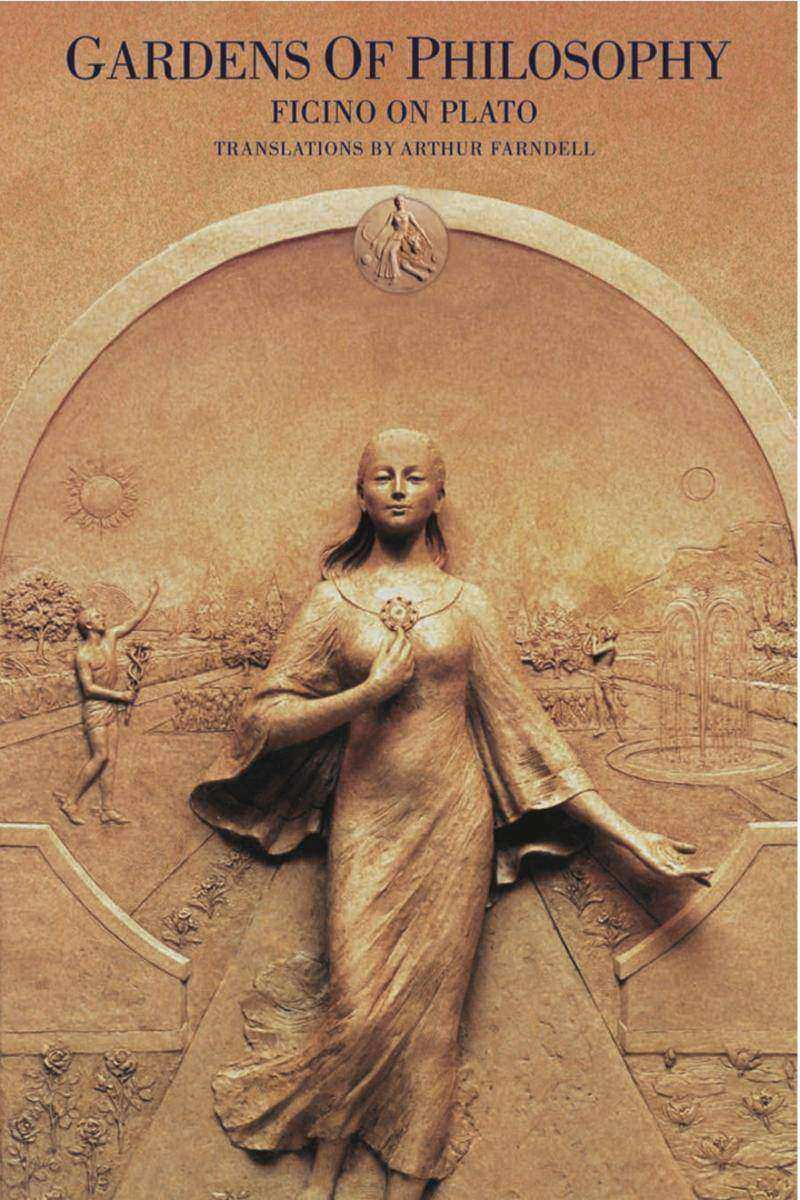
Gardens of Philosophy
¥24.44
What made the Renaissance tickWhy had it such a force that its thinking spread from a small group of scholars in Florence, working in their own brilliant ways but coming together in a small villa on the Florentine hillside where Marsilio Ficino (143399) lived, to affect the thinking of the whole of Europe, and eventually of America, for five hundred years and is continuing to do soCosimo de?Medici, the virtual ruler of Florence, had been attracted to the philosophy of Plato by Gemistos Plethon during the Council Florence in 1439 and had instructed his agents to gather together Plato?s works before Constantinople fell to the Turks in 1453. In 1462 he commissioned Marsilio Ficino to translate them from Greek into Latin for the benefit of the Latin speaking world, a task he completed in under five years according to his biographer Giovanni Corsi. This, the first volume in a four volume series, provides the first English translation of the 25 short commentaries on the dialogues and the 12 letters traditionally ascribed to Plato. Later volumes will provide translations of his longer commentaries on the Parmenides (2008), the Republic and Laws (2009) and Timaeus (2010). Though this book will be an essential buy for Renaissance scholars and historians, its freshness of thought and wisdom are as relevant today as they ever were to inspire a new generation seeking spiritual and philosophical direction in their lives.

Apache Mahout Clustering Designs
¥63.21
Explore clustering algorithms used with Apache MahoutAbout This BookUse Mahout for clustering datasets and gain useful insightsExplore the different clustering algorithms used in day-to-day workA practical guide to create and evaluate your own clustering models using real world data sets Who This Book Is For This book is for developers who want to try out clustering on large datasets using Mahout. It will also be useful for those users who don’t have background in Mahout, but have knowledge of basic programming and are familiar with basics of machine learning and clustering. It will be helpful if you know about clustering techniques with some other tool.What You Will LearnExplore clustering algorithms and cluster evaluation techniquesLearn different types of clustering and distance measuring techniquesPerform clustering on your data using K-Means clusteringDiscover how canopy clustering is used as pre-process step for K-MeansUse the Fuzzy K-Means algorithm in Apache MahoutImplement Streaming K-Means clustering in MahoutLearn Spectral K-Means clustering implementation of Mahout In Detail As more and more organizations are discovering the use of big data analytics, interest in platforms that provide storage, computation, and analytic capabilities has increased. Apache Mahout caters to this need and paves the way for the implementation of complex algorithms in the field of machine learning to better analyse your data and get useful insights into it. Starting with the introduction of clustering algorithms, this book provides an insight into Apache Mahout and different algorithms it uses for clustering data. It provides a general introduction of the algorithms, such as K-Means, Fuzzy K-Means, StreamingKMeans, and how to use Mahout to cluster your data using a particular algorithm. You will study the different types of clustering and learn how to use Apache Mahout with real world data sets to implement and evaluate your clusters. This book will discuss about cluster improvement and visualization using Mahout APIs and also explore model-based clustering and topic modelling using Dirichlet process. Finally, you will learn how to build and deploy a model for production use.Style and approach This book is a hand's-on guide with examples using real-world datasets. Each chapter begins by explaining the algorithm in detail and follows up with showing how to use mahout for that algorithm using example data-sets.

A Touch Of Love
¥24.44
After her young nephew and two nieces’ parents are drowned in a tragic sailing accident off the coast of Cornwall, the beautiful red-headed Tamara is devastated by their loss and realises almost at once that she is the only person who can look after the three children as she loves them so much. She speaks to the local Solicitor, who tells her that there is no money left in her brother-in-law’s estate and so she has no choice but to take the three children to their uncle, the Duke of Granchester, who lives in splendid isolation in a vast sprawling but intimidating Castle in Gloucestershire. The prospect at once appals Tamara. Firstly because she despises the Duke for the way he had cut off all contact with her sister and brother-in-law as he disapproved of their marriage, thinking that she was an actress when in fact she was a renowned opera singer. Worse still, Tamara has written a somewhat scurrilous novel portraying the Duke as the vile character she believes him to be! And the novel is just about to be published in London! Arriving at Granchester Castle in the guise of the children’s Governess, she finds the Duke to be as arrogant, high-handed and annoyingly handsome as her fictional portrayal of him and she hates him even more bitterly. Until a touch of love intervenes and changes everything forever.

Cocos2d-x Cookbook
¥80.65
Over 50 hands-on recipes to help you efficiently administer and maintain your games with Cocos2d-xAbout This BookBuild exciting games, apps, and other cross-platform GUI based interactive programs with Cocos2d-xExplore the nitty-gritty of the latest Cocos2d-x on the block, version 3.6A step-by-step guide that shows you the functionalities of Cocos2d-x followed by an explanation of how they work Who This Book Is For If you are a game developer and want to learn more about cross-platform game development in Cocos2d-x, then this book is for you. Knowledge of C++, Xcode, Eclipse, and how to use commands in the terminal are prerequisites for this book.What You Will LearnInstall and set up Cocos2d-x for your development environmentBuild, test, and release game applications for iOS and AndroidDevelop your games for multiple platformsCustomize Cocos2d-x for your gamesUse a physical engine in your gamesSave and load text, JSON, XML, or other formatsExplore the brand new features of Cocos2d-x In Detail Cocos2d-x is a suite of open source, cross-platform game-development tools used by thousands of developers all over the world. Cocos2d-x is a game framework written in C++, with a thin platform-dependent layer. Completely written in C++, the core engine has the smallest footprint and the fastest speed of any other game engine, and is optimized to be run on all kinds of devices. You will begin with the initial setup and installation of Cocos2d before moving on to the fundamentals needed to create a new project. You will then explore and create the sprites, animations, and actions that you will include in the game. Next you will look at strings and create labels, including a label with True Type Font (TTF) font support. Later, you will learn about layer and scene creation and transition. Then you will create the GUI parts essential for a game, such as buttons and switches. After that, you will breathe life into the game with background music and sound effects using the all new Cocos2d-x audio engine. You will then discover how to manage resource files and implement processes that depend on the operating system. Finally, you will polish your game with physics such as gravity and elevation, learn about tools that will help you make games more robust and stable, and get to know best practices to improve the game you have developed.Style and approach This book is an easy-to-follow guide with ample recipes to help you better understand Cocos2d-x.

Real Time Analytics with SAP HANA
¥71.93
Enhance your SAP HANA skills using this step-by-step guide to creating and reporting data models for real-time analyticsAbout This BookThis book will help you to process analytical and transactional data in real time with the help of SAP HANA.Walk through the steps of the data modeling process and build various data models and artifacts in SAP HANA Studio.Packed with rich examples and use cases that are closely focused on developing real-time applications. Who This Book Is For If you are a SAP HANA data modeler, developer, implementation/migration consultant, project manager, or architect who is responsible for implementing/migrating to SAP HANA, then this book is for you.What You Will LearnGet to grips with the basic building blocks of Analytics/Data models in the SAP HANA environment.Discover various schemas, modeling principles, Joins, and the architecture of the SAP HANA engine.Build data models and artifacts in Sap HANA Studio.Design decision tables and understand the concept of transport management in the SAP HANA landscape.Work with the different views in SAP HANA Studio.Explore full-text search and fuzzy search in SAP HANA.Create your own scenarios and use cases using sample data and code. In Detail SAP HANA is an in-memory database created by SAP. SAP HANA breaks traditional database barriers to simplify IT landscapes, eliminating data preparation, pre-aggregation, and tuning. SAP HANA and in-memory computing allow you to instantly access huge volumes of structured and unstructured data, including text data, from different sources. Starting with data modeling, this fast-paced guide shows you how to add a system to SAP HANA Studio, create a schema, packages, and delivery unit. Moving on, you’ll get an understanding of real-time replication via SLT and learn how to use SAP HANA Studio to perform this. We’ll also have a quick look at SAP Business Object DATA service and SAP Direct Extractor for Data Load. After that, you will learn to create HANA artifacts—Analytical Privileges and Calculation View. At the end of the book, we will explore the SMART DATA access option and AFL library, and finally deliver pre-packaged functionality that can be used to build information models faster and easier.Style and approach This is an easy-to-follow, step-by-step, rapid guide to help you learn analytics in SAP HANA through ample hands-on exercises and use case scenarios.

The Last Veteran: Harry Patch and the Legacy of War
¥73.58
This moving and timely book explores the way the First World War has been thought about and commemorated, and how it has affected its own, and later, generations. On 11 November 1920, huge crowds lined the streets of London for the funeral of the Unknown Warrior. As the coffin was drawn on a gun carriage from the Cenotaph to Westminster Abbey, the King and Ministers of State followed silently behind. The modern world had tilted on its axis, but it had been saved. Armistice Day was born, the acknowledgement of the great sacrifice made by a whole generation of British men and women. Now, almost a century later, Harry Patch, the last British veteran who saw active service, has died. Our final link with the First World War is broken. Harry Patch was born in 1898 and was con*ed in 1916. He served with a Lewis gun team at the Battle of Passchendaele and in September 1917 was wounded by a shell that killed three of his comrades. After the war, Patch returned to Somerset to work as a plumber, a job he continued to do until his retirement. The First World War was fought not by a professional army but by ordinary civilians like Patch, who epitomised Edwardian Britain and the sense, now lost, of what Britain stood for and why it was worth fighting for. The Last Veteran tells Patch's story, and explores the meaning of the war to those who fought in it and the generations that have followed. Peter Parker's illuminating and timely book is a moving tribute to a remarkable generation.

Nature Near London (Collins Nature Library)
¥147.35
The Collins Nature Library is a new series of classic British nature writing – reissues of long-lost seminal works. The titles have been chosen by one of Britain’s best known and highly acclaimed nature writers, Robert Macfarlane, who has also written new introductions that put these classics into a modern context. Nature Near London is a collection of observational pieces from locations near London at the end of the 19th Century. The depth of knowledge and of familiarity with particular places and particular species gives the impression that each small piece is the product of many years of observation. His style of observation is a work in miniature – cataloguing the most minute details; the dancing of a flower in the wind or the darting of a cautious trout. The chapters centre on a special place, a certain species, geographical feature or habitat – everything from orchards and copses to rivers and streams. Jefferies always explains the typical behaviour of whatever he is describing, and often contrasts what he sees with what one would expect to see in another part of the country, or in a different season. His knowledge of flowers is wide-ranging, and his ability to describe one particular patch of a field in such a specific way brings tremendous variety to the chapters that make up the book. The final chapters are a departure – both from the character of the rest of the book, and from London itself, as Jefferies boards the train to Brighton. Suddenly he is describing people and their relationship to nature, as much as nature itself. The scope widens, less a work in miniature, more surging towards a triumphant end as Jefferies becomes ever more philosophical. 100 years on, the book becomes even more relevant than when it was published – as a reminder of the dangers of unrelenting urbanisation, but also the context of the trend that aims to recreate nature where we need it most – around our cities. Nature near London is a portrait of what we’ve lost, and a reminder of nature’s positive and calming influence. Going along with Jefferies is like taking an afternoon stroll out of the city, without having to leave your armchair.
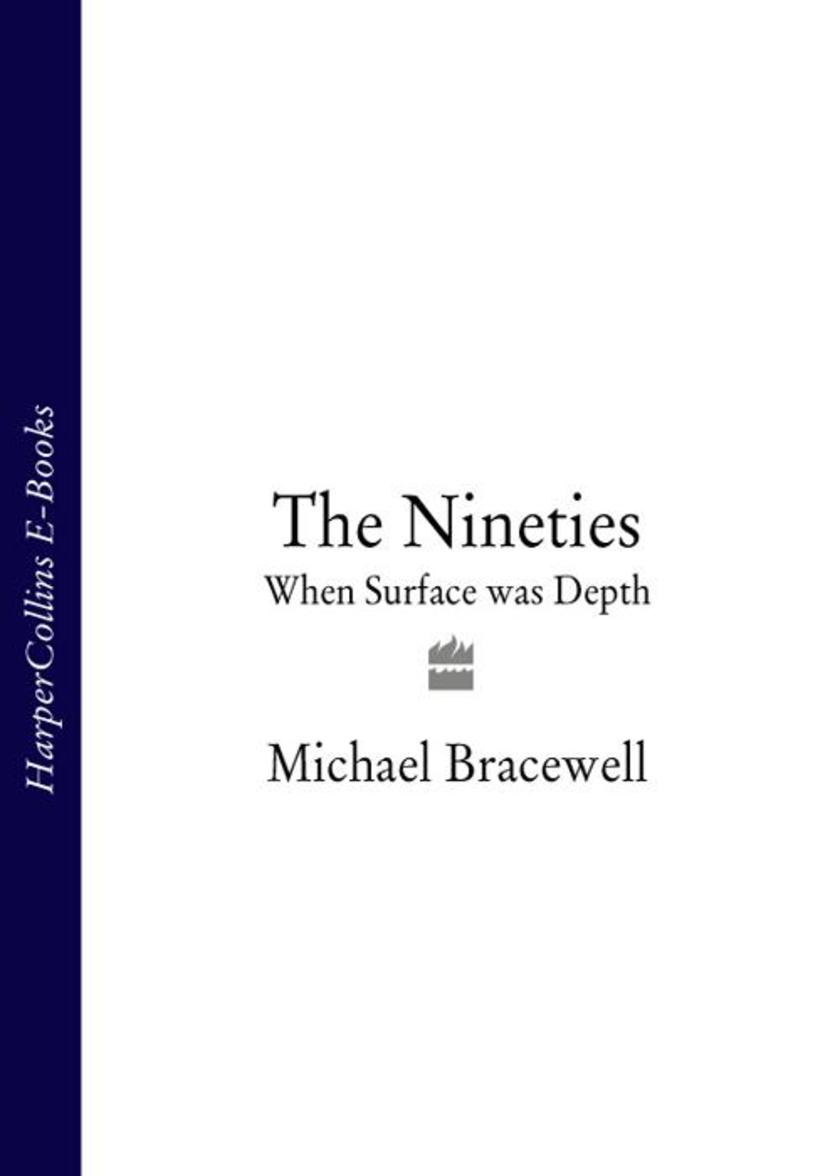
The Nineties: When Surface was Depth
¥72.99
the first clear anatomy of a confused decade, the 1990s – ‘Bracewell, with great verve and style, animates the cultural conversation’, Greil Marcus 'Michael Bracewell is the most adroitly gifted writer of his generation.' Morrissey Michael Bracewell is now clearly established as one of the most subtle, penetrating, amusing and far-sighted of all observers of the contemporary scene in Britain. His writing on culture high and low is coveted by every broadsheet, every stylish glossy monthly magazine and on radio and TV punditry platforms. His book, England Is Mine, about the distinctive Englishness of these islands’ twentieth-century popular culture, earned him incredible reviews and an unchallenged position as the first person any right-minded arts producer/editor turns to when they need a definitive opinion about how English or otherwise some new-fangled cultural phenomenon is. With this book Bracewell gives us the first consideration of that still-warm, still-bizarre, still-confused and confusing decade. He talks to and talks about a host of representative Nineties figures, some already forgotten, some absolutely emblematic of their times – from Hanson to Alexander McQueen, from Tracey Emin to Ulrika Jonsson, from the Spice Girls to Duran Duran (yes, Duran Duran). Painstakingly, sometimes painfully, he puts all the pieces together and starts to make sense of it all…

Battle for the Falklands:The Winter War
¥54.65
‘Boldly planned, bravely executed and brilliantly accomplished’ was Margaret Thatcher’s assessment of the Falklands campaign. But what did the war mean to the men in the trenches and below decks? This gripping first-hand account of the Falklands War, written by bestselling military historian Patrick Bishop and Sunday Times Editor John Witherow, reveals the true experiences of the British soldiers and seamen on the front line. The authors, then rookie reporters, lived alongside the fighting men, experiencing the daily realities of a British task force that was hugely outnumbered on a barren island 8,000 miles from home. The Falklands: The Winter War looks at the covert role of the SAS and the heroic death of Colonel ‘H’ Jones at Goose Green, and considers just how close Britain came to defeat. This is an extraordinarily frank and unsparing account of a military campaign that has held a defining place within the British national conscience since victory in 1982.
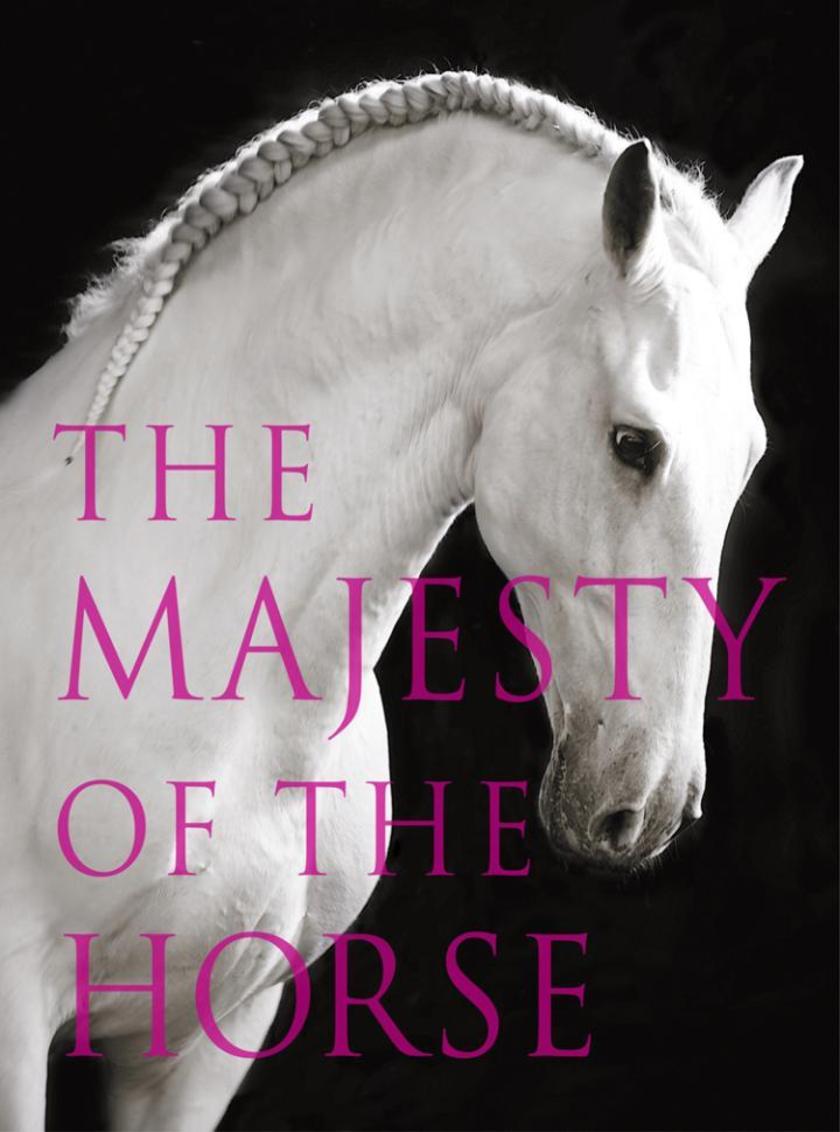
The Majesty of the Horse:An Illustrated History
¥221.12
The Majesty of the Horse is a celebration of an animal that has shaped the fate of mankind. Written as a glorious celebration of this noblest of animals, the book explores the sheer beauty and grandeur of horses, revealing the central role they have played in human societies throughout the world and across the ages. The book showcases equine photographer Astrid Harrisson’s amazing portraiture and stunning images of horses in motion, with pictures that capture the essence of many different breeds. It pays homage not only to the physical splendour of the horse – its grace, strength,and extraordinary adaptability – but also to the animal’s remarkable diversity. Equestrian specialist Tamsin Pickeral traces the evolution of the most significant and fascinating breeds, among them , the tiny, fiery Caspian, a native of the Caspian Sea’s south shore; the proud Thoroughbred; the genetically pure Icelandic Pony; the heroic Shire horse; and many others. For millenia, horses have enabled mankind to work the land effectively, travel across vast territories, go to war, and ride for sport and pleasure. The Majesty of the Horse reveals the stories behind the breeds of horses that humans have bred to produce the most efficient horse to fight on, to pull a plough, to travel on, pull a coach, or work with. Equestrian expert Tamsin Pickeral and award-winning horse photographer Astrid Harrisson spent a year combing the world in search of the best horses for The Majesty of the Horse.




 购物车
购物车 个人中心
个人中心



